
Auther:2025-05-06
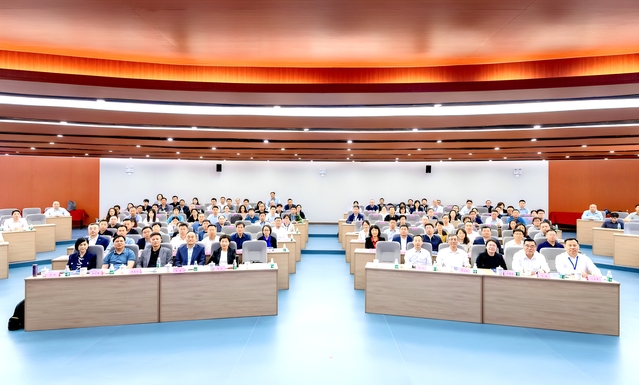
From April 29 to 30, the Education follows output, industry and education go hand in hand and Jiangsu the Belt and Road construction talent training and co promotion of cultural exchanges seminar were successfully held in the college. Relevant leaders of the People to People and Cultural Exchange Center of the Ministry of Education, the Foreign Cooperation and Exchange Office of the Department of Education of Jiangsu Province, and the Jiangsu Education International Exchange Association came to the scene. Representatives from more than 50 universities and enterprises across the country, as well as more than 160 guests from functional departments of colleges and secondary teaching units, focused on service and jointly built the the Belt and Road, and promoted in-depth discussions on the core issue of international talent training. The meeting was chaired by the Deputy Secretary of the College, Wen Aimin.
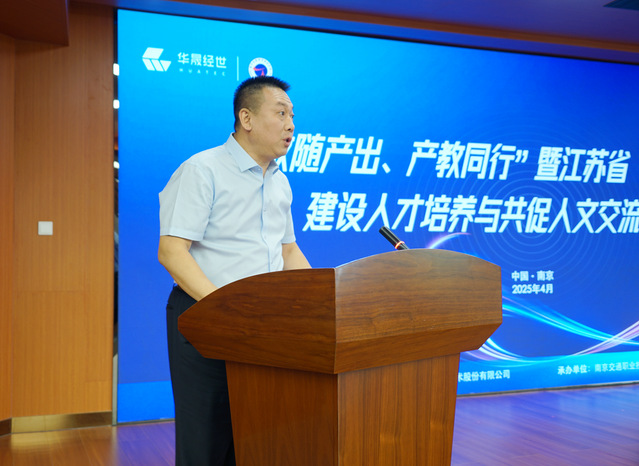
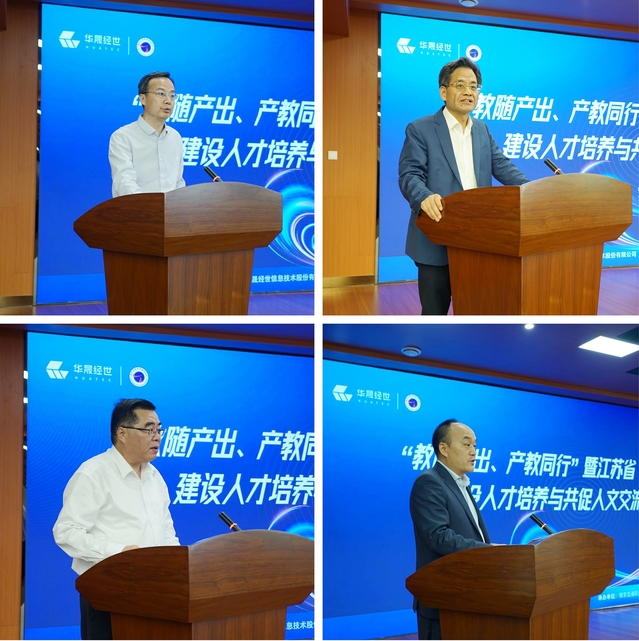
The government guides the establishment of a platform, and the government, schools, and enterprises jointly plan a blueprint for the integration of industry and education. Zhang Xueren, deputy director of the Ministry of Education's China Foreign People's Exchange Center, stressed that vocational education should be based on national strategic needs, and continue to improve its ability to serve and jointly build the the Belt and Road and open education to the outside world. Zheng Xing, a third level researcher at the Department of Foreign Cooperation and Exchange of the Education Department of Jiangsu Province, emphasized the practical path of the education follows output concept, proposing to optimize the allocation of educational resources guided by industrial demand and promote further cooperation between universities and enterprises in Jiangsu Province. Feng Dasheng, Vice President of Jiangsu Education International Exchange Association, stated that a school enterprise cooperation platform will be established to promote precise alignment between talent cultivation and industry demand, forming a policy led, platform supported, and multi-party collaborative development pattern of industry education integration. Zhang Yi, Secretary of the Party Committee of the College, said in his welcoming speech that as the intersection of the the Belt and Road, Jiangsu higher vocational colleges will deepen the integration of industry and education, highlight the traffic characteristics, actively participate in the cultural exchange brand building plan, and promote high-quality international talent training. Zhang Yong, Chairman of Beijing Huasheng Jingshi Information Technology Co., Ltd., stated that he adheres to the principle of government guidance, enterprise empowerment to assist universities in cultivating applied, versatile, and innovative international talents.
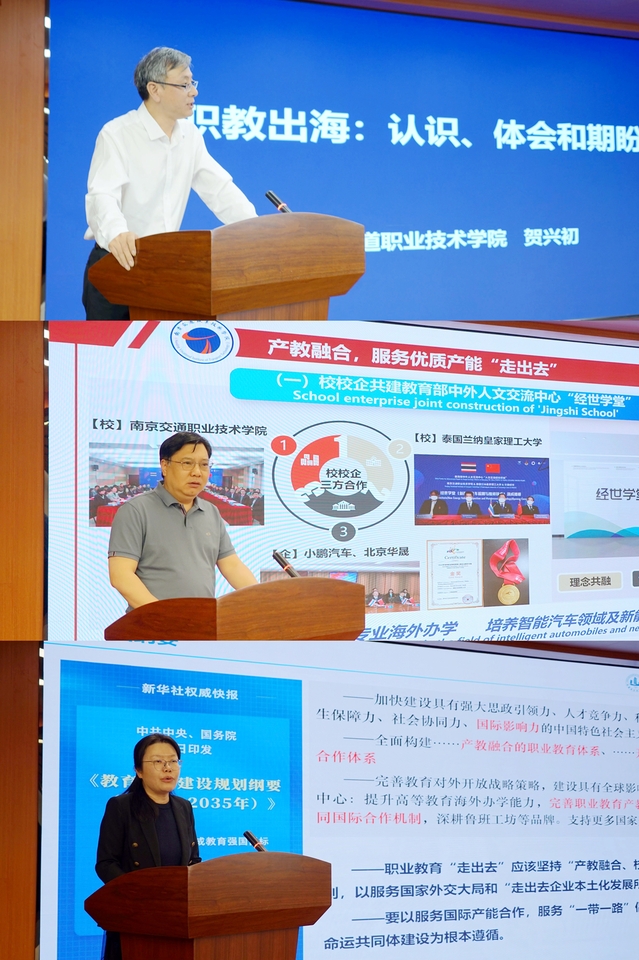
Establishing benchmarks through institutional practice and exploring the Jiangsu Plan for vocational education going abroad. In the experience sharing session of colleges and universities, He Xingchu, the Secretary of the Party Committee of Nanjing Railway Vocational and Technical College, systematically elaborated on Vocational Education Going Global: Understanding, Understanding, and Expectations, and proposed development suggestions for building a mechanism for promoting government enterprise cooperation. Wang Daofeng, President of Nanjing Transportation Vocational and Technical College, and Wu Huiyuan, Vice President of Wuxi Vocational and Technical College, respectively showcased the innovative explorations made by Jiangsu vocational colleges in terms of vocational education going global and international development. Jiangsu vocational education has formed characteristic models such as standard output+localization transformation, industrial college+order training, technical training+cultural integration, etc., and has formed a replicable international vocational education cooperation paradigm, providing Jiangsu experience for vocational education to go global.
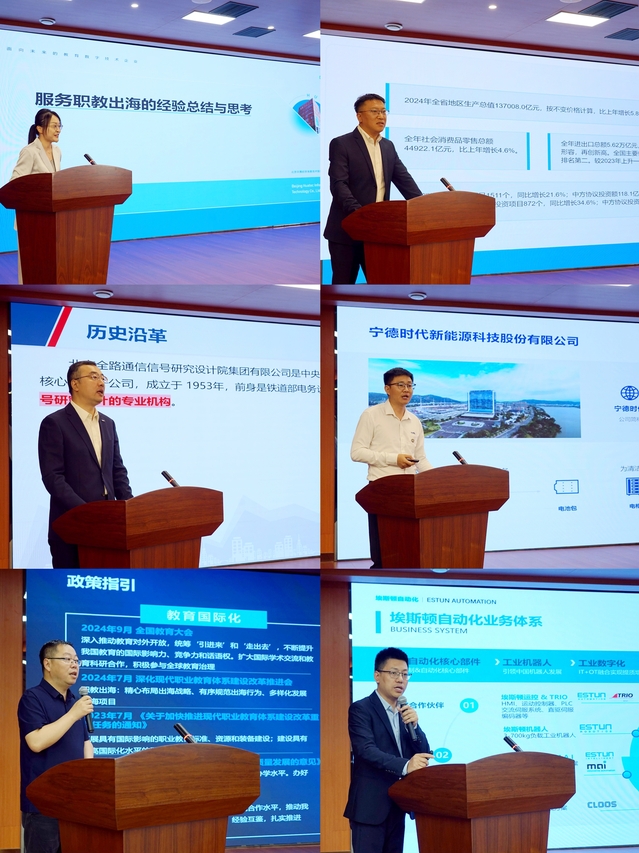
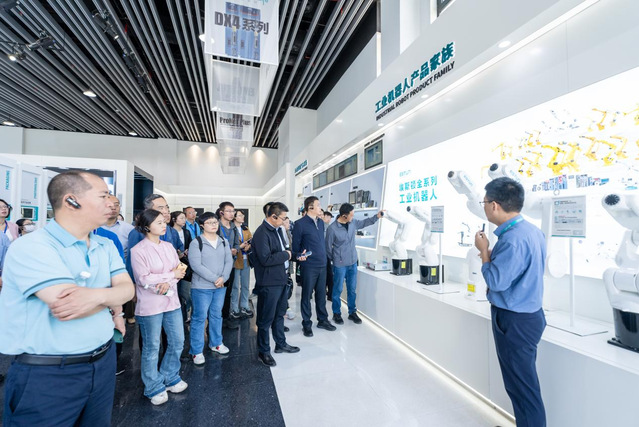
Enterprises gather strength to promote win-win cooperation, and peers from schools and enterprises serve the global industrial layout. Representatives from five leading enterprises, including Beijing Huasheng Jingshi, conducted an in-depth analysis of the global talent demand map for the industrial chain. Beijing Quanlu Communication Signal Research and Design Institute Group Co., Ltd. shared valuable experience in the integration of industry and education in cultivating skilled craftsmen, skilled workers, and high skilled talents for China's high-speed railway communication signals. CATL introduced innovative practices in talent cultivation for the global new energy aftermarket. ZTE Corporation shared its active exploration in building a new foundation for digital education and creating a new engine for vocational education to go global. Nanjing Estun Automation Co., Ltd. elaborated on its innovative exploration in the internationalization layout of the enterprise and talent cultivation in the international process. The representatives also conducted on-site inspections of ZTE Mulong Laboratory and Estun Automation Intelligent Production Line, witnessing the new requirements put forward by China Intelligent Manufacturing for the cultivation of technical and skilled talents.
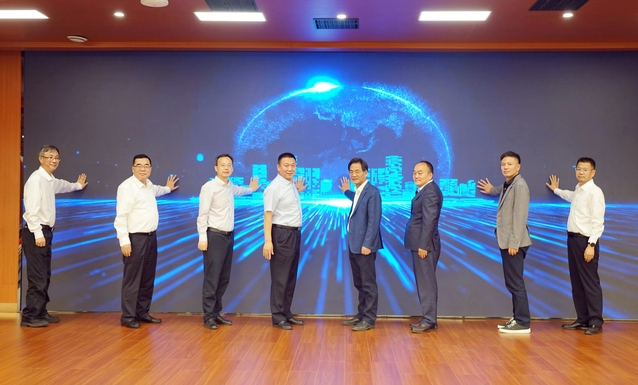
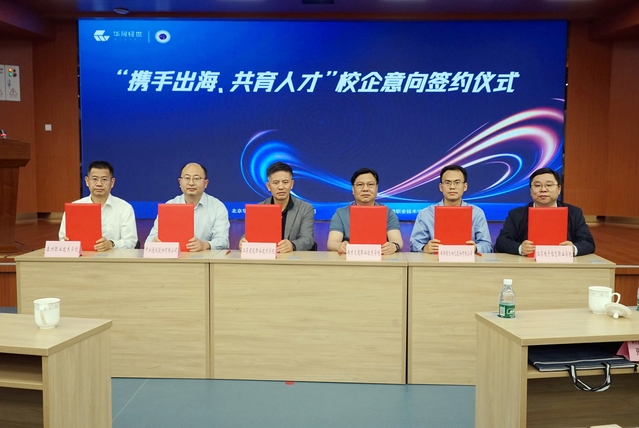
At the event, a launching ceremony and a signing ceremony for the Teaching with Output, School Enterprise Collaboration program were also held. In the future, both schools and enterprises will carry out in-depth cooperation in areas such as teacher training, platform construction, skills training, and cultural exchanges, and work together to build an innovative development pattern of Teaching with Output, Industry Education Collaboration.

